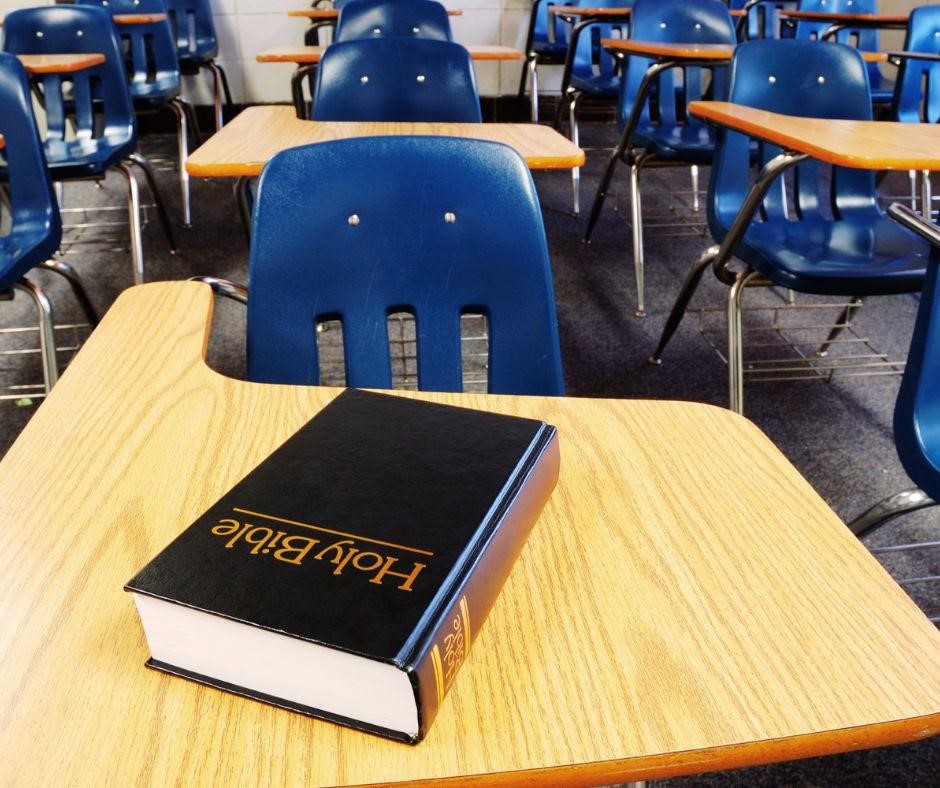By Ian Giatti
The Christian Post
The head of a Texas school district says the Bible had to be removed from school libraries because of a new state law prohibiting explicit books.
Canyon Independent School District Superintendent Darryl Flusche announced in an email leaked earlier this week that under House Bill 900, which was passed by the Texas Legislature in 2023 protecting schools from sexually explicit or vulgar content, the Holy Bible is unsuitable due to “sexually explicit material.”
In an email to concerned parents, Flusche stated the full text of the Bible had been removed because it was categorized under this mandate, even though portions of the Bible remain available in the district’s libraries.
Flusche’s statement cited the law’s section defining “sexually explicit material” as “any communication, language, or material” that describes or depicts sexual conduct in a manner that is “patently offensive” under the Texas Penal Code.
Noting that there are 30 titles available in the library at Canyon Jr. High that are “Bible stories or portions of the Bible,” Flusche also cited the school’s “strong connections with local churches that [would be] happy to donate a Bible upon request.
“We are more than willing to assist a student who would like access to a Bible by arranging this from one of our partnering churches,” he added. Flusche concluded the email by urging parents to contact their state legislators about HB 900.
CP reached out to both Flusche and the school district for comments on Wednesday. This story will be updated if a response is received.
The email sparked outrage from local parents, with many expressing disbelief at the decision.
At a school board meeting on Dec. 9, Canyon ISD parent Regina Kiehne told school officials it “seems absurd to me that the Good Book was thrown out with the bad books.”
Kiehne, who identified herself as the mother of two Canyon ISD students, said, “In a day when we are needing security guards and bulletproof windows and doors, I think having the Word of God available to our children cannot only be preventative to violence, but also provide comfort and a sense of security in a chaotic world.”
She also noted that amid rising anxiety over issues like inflation, political uncertainty, and school violence, young people increasingly turn to the Bible for comfort.
“It just makes sense to have the Word of God in our school library,” she said. “After all, it is the book of wisdom. It is the bestselling book of all time; it is historically accurate, scientifically sound, and most importantly, life-changing.”
Kiehne highlighted the Bible’s status as the most stolen book in history, stating, “The only reason something is stolen is because it is valuable. The Bible holds great value. It should be valued in our Texas school system.”
This incident underscores a larger conversation in Texas about the place of religious texts in public education.
In the last year, some state lawmakers, including Republican Rep. Bill Zedler, have championed bills to display the Ten Commandments in classrooms across the state, arguing that they provide a moral foundation and align with American values. However, these efforts have faced resistance from critics who argue that such displays violate the Establishment Clause of the First Amendment of the U.S. Constitution.
Supporters of the Ten Commandments in classrooms, like Louisiana state Rep. Dodie Horton, a Republican, believe the commandments’ historical and moral value outweighs religious freedom concerns.
Advocates for the Bible’s presence in school libraries argue that, far from endorsing any particular religion, access to the Bible supports the development of character, critical thinking, and a deeper understanding of history and literature.
This article was originally published in The Christian Post.
















